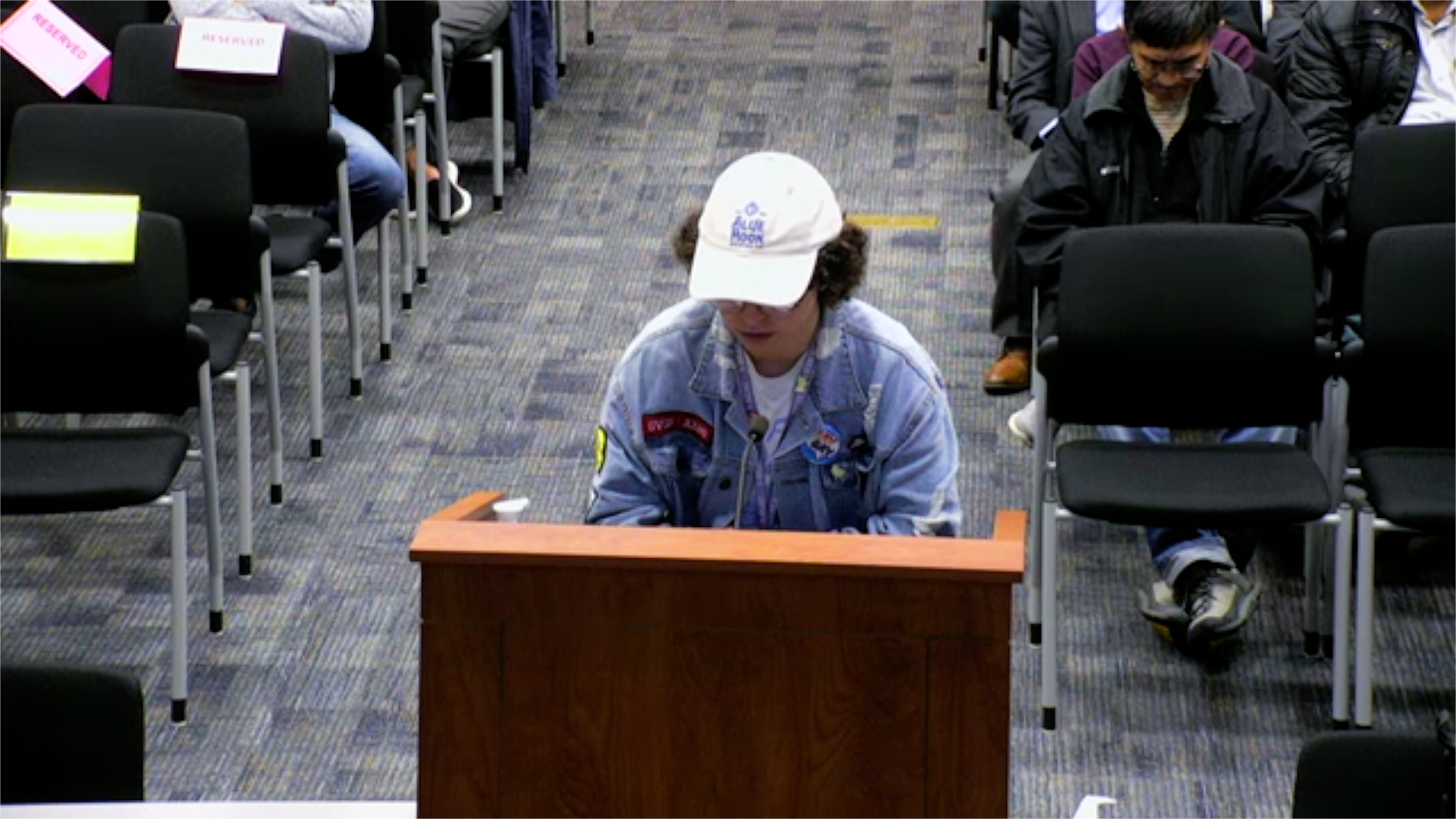
Jarred Burton speaking at Katy ISD's January 22, 2024 school board meeting.
Don’t replace counselors with religious chaplains.
Many Texas schools this month are once again a battleground in culture wars that have plagued education in recent years. From banning books with LGBTQ+ content to suspending students of color over their hairstyles, politicians are pressuring schools to stop focusing so much on student education and have instead begun imbuing bigotry and religion into the public school system. And now, after Senate Bill 763 took effect on Sept. 1, 2023, unlicensed religious chaplains can now take on school counselor positions.
With significant controversy regarding religious freedom and parents’ rights, several of the state’s districts will vote this month on whether to implement the new policy before the March 1, 2024 deadline.
As a student in the Greater Houston area, I am vehemently opposed to untrained religious chaplains taking on the responsibilities of school counselors.
School counselors have various roles. From providing mental health services to writing student schedules, counselors are essential to the continued operation of public schools. Before taking on these responsibilities, school counselors in Texas must obtain a master’s degree. But SB 763 specifically states that chaplains are not required to be certified by the State Board for Educator Certification before acting as counselors. This dangerously low standard is a disservice to Texas students.
Lawmakers also decided against protections including requiring parental consent for students to receive chaplain services; protection of religious freedoms of students, parents and staff; prohibiting student proselytization, and respecting the diversity of students and staff. They also decided not to require chaplains to refer students to other professionals if their religious beliefs render them unable to support those students’ specific needs.
The new law has none of these guidelines in place.
Many Texans oppose this bill, including a number of religious chaplains themselves. In August, over 100 Texas chaplains signed a letter in staunch opposition, claiming that as chaplains, they have neither the education nor the experience required of school counselors.
In many districts across Texas, religious chaplains are already allowed to volunteer — just like parents or other community members. However, making counselors of chaplains without allowing students to opt out and without explicitly guaranteeing the protection of their religious freedoms could very possibly harm students.
All over the nation — and in southern states especially — we are seeing intense legal attacks on the rights and safety of LGBTQ+ students. Katy ISD, one of the key districts set to vote on the bill this month, recently passed a policy that allows staff to out transgender students to their possibly unsupportive families. Adding chaplains as counselors adds another obstacle for struggling LGBTQ+ students in the state.
The new law erases some religious freedoms of students and the rights of parents. By overstepping parental rights and giving students no option to opt out of chaplain services, students could essentially be forced into a kind of state-sanctioned religious indoctrination.
All school boards in Texas must decide by Mar. 1 whether to allow chaplains to work in counselor positions. While many of the state’s largest districts — Houston and Austin ISDs, to name two — have voted against using chaplains as counselors, others — including Georgetown and Mineola ISDs — have voted to adopt the new policies in some form. As the deadline nears, many Houston-area districts such as Galveston and Katy ISDs have still yet to vote.
Chaplains are not qualified to perform the duties of school counselors. They are not trained to provide mental health services or write our students’ 504 plans.
If your district has not yet voted on this new policy, make your voice heard. Speak at your local board meetings, e-mail your board trustees.
Chaplains have a time and a place they are needed, and Texas schools are not one of them.
